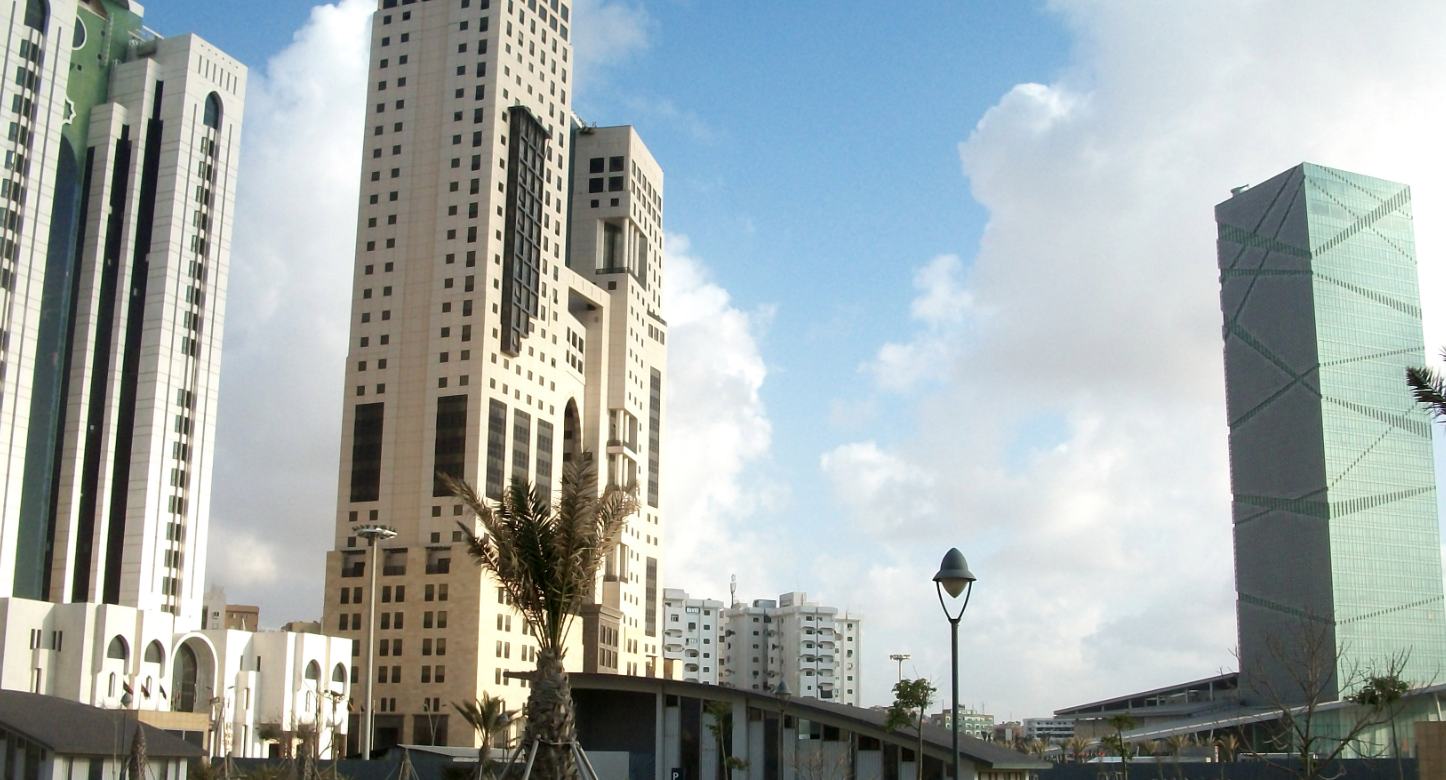The IMF adopted and published on June 9 an “Article IV” report, the first assessment by the IMF of the macroeconomic situation in Libya for 10 years. Although the level of transparency, exhaustiveness and objectivity of economic data remains low in Libya, the IMF considered the progress sufficient to try to update the assessment of the macroeconomic situation and to draw up recommendations .
Hydrocarbon resources, abundant but volatile, provide 95% of the country’s income and exports.
Illustrating the extreme volatility of the Libyan economy dependent on oil revenues and the security situation, the IMF forecasts growth of 18.8% this year, after -11.4% in 2022, +28.3% in 2021 and -29.5% in 2020, depending on the evolution of international prices and disruptions in domestic production.
Despite the sharp rise in public spending, the explosion in oil prices and the depreciation of the dinar would have made it possible to generate significant budget surpluses ($4.4 billion in 2021 and $6.4 billion in 2022) and a accumulation of foreign currency reserves estimated at $82 billion in 2022, i.e. 200% of GDP and 4 years of imports. However, this reserve accumulation also reveals Libya’s inability to invest and develop, as evidenced by the low level of capital expenditure, particularly in oil and gas infrastructure, in the absence of a budget law vote.
The IMF pleads for a real long-term economic and budgetary policy in favor of the country’s economic diversification, while oil export revenues represent 97% of State revenues, estimated at 28 billion USD in 2022 and that 90% of the country’s employees (1/3 of the total population, 2.2 M people) depend on the public sector.
The authorities of the IMF evoke the urgency of agreeing on a budget with an obligation of annual planning and establishment of objectives of budgetary policy and priority of expenditure. The current short-term budgetary process only allows the redistribution of the oil rent in wages and subsidies, the procyclical nature of which “threatens macroeconomic stability and intergenerational equity”.
While the price at the pump of gasoline is maintained at $0.03/litre (unchanged since 1978), the IMF pleads in particular for a reduction in fuel subsidies, which disproportionately benefit the wealthiest households, and their replacement by targeted direct allocations, especially since the cost of these subsidies would be largely underestimated (revenue from crude oil exports not counted because they are used directly to import refined products resold at local subsidized prices). According to the IMF, the actual amount of subsidies had reached $8.5 billion in 2022, well above the $1 billion officially recorded.
IMF staff also recommends tighter control of some 2,000 public enterprises, as well as a comprehensive reform of tax administration and stricter control of customs operations to mobilize more non-oil revenue.
Despite the recognition of stabilizing measures, progress in the management of the financial system is essential, in the first place the reunification of the central bank and its withdrawal from the banking sector. The IMF recognizes the role of the devaluation in 2021 and certain capital control measures to preserve foreign exchange reserves and stem the parallel foreign exchange market.
Inflation would also be relatively under control (from 1.5% in 2020 to 4.5% in 2022), notwithstanding the reservations that can be expressed about the reliability of the price index in Libya. However, the discretionary policy of granting letters of credit, the lack of progress in the reunification of the BCL and the conflicts of interest emanating from the confusion of the roles of the BCL between actor and regulator of the banking sector increase the tensions of liquidities in particular in the East, the flight of currencies out of the official banking sector, as well as the failures of the system of prudential control and fight against money laundering.
The reunification of the BCL and its disengagement from the commercial banks it holds (70% of banking assets and 80% of loans granted), by strengthening confidence in the banking sector and increasing bank deposits, would constitute an essential step towards financial stability and promotion of private sector development.
The World Bank published at the same time an economic report on Libya with similar conclusions. While the economic orders of magnitude sometimes differ significantly from those of the IMF, reflecting the difficulty of collecting economic information, the conclusions and recommendations remain similar.
The World Bank assesses in particular the economic and social consequences of the chronic instability of the country: GDP per capita would have halved between 2011 and 2020; 43% of households would not have sufficient access to health, 22% would not have satisfactory access to running water and they would experience an average of 6.3 hours of power outage per day, while the system social protection has deteriorated sharply since 2011.
In addition to the need for a political agreement and the development of a new social contract at the national level, the WB recommends greater decentralization in the management of public finances and oil revenues and the establishment of a social policy global framework allowing at the very least a distinction between social transfers and civil service salaries.
Source Embassy of France in Tunisia








Réagissez à cet article